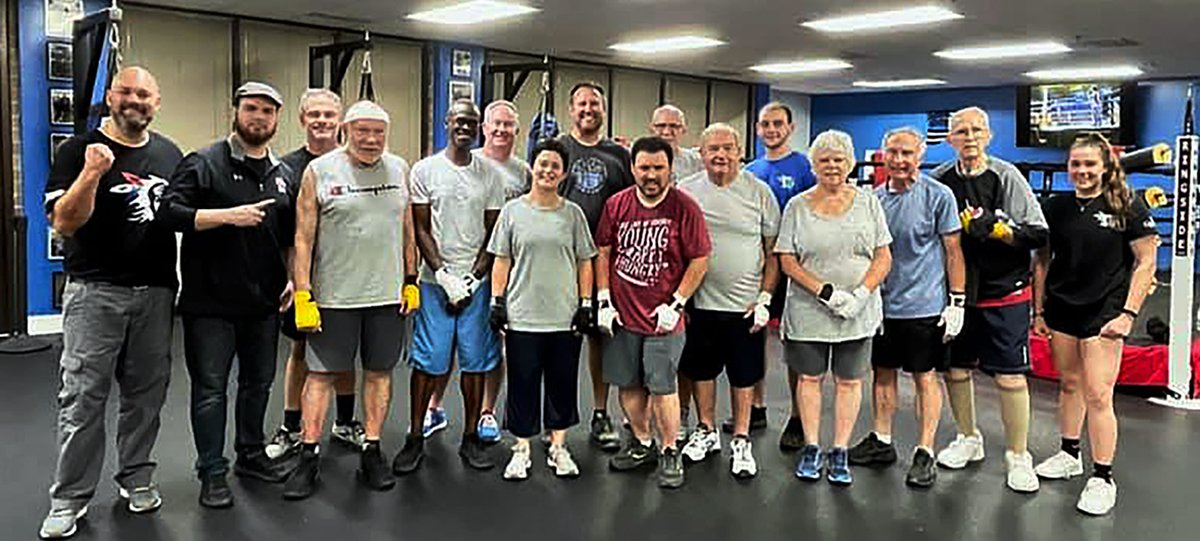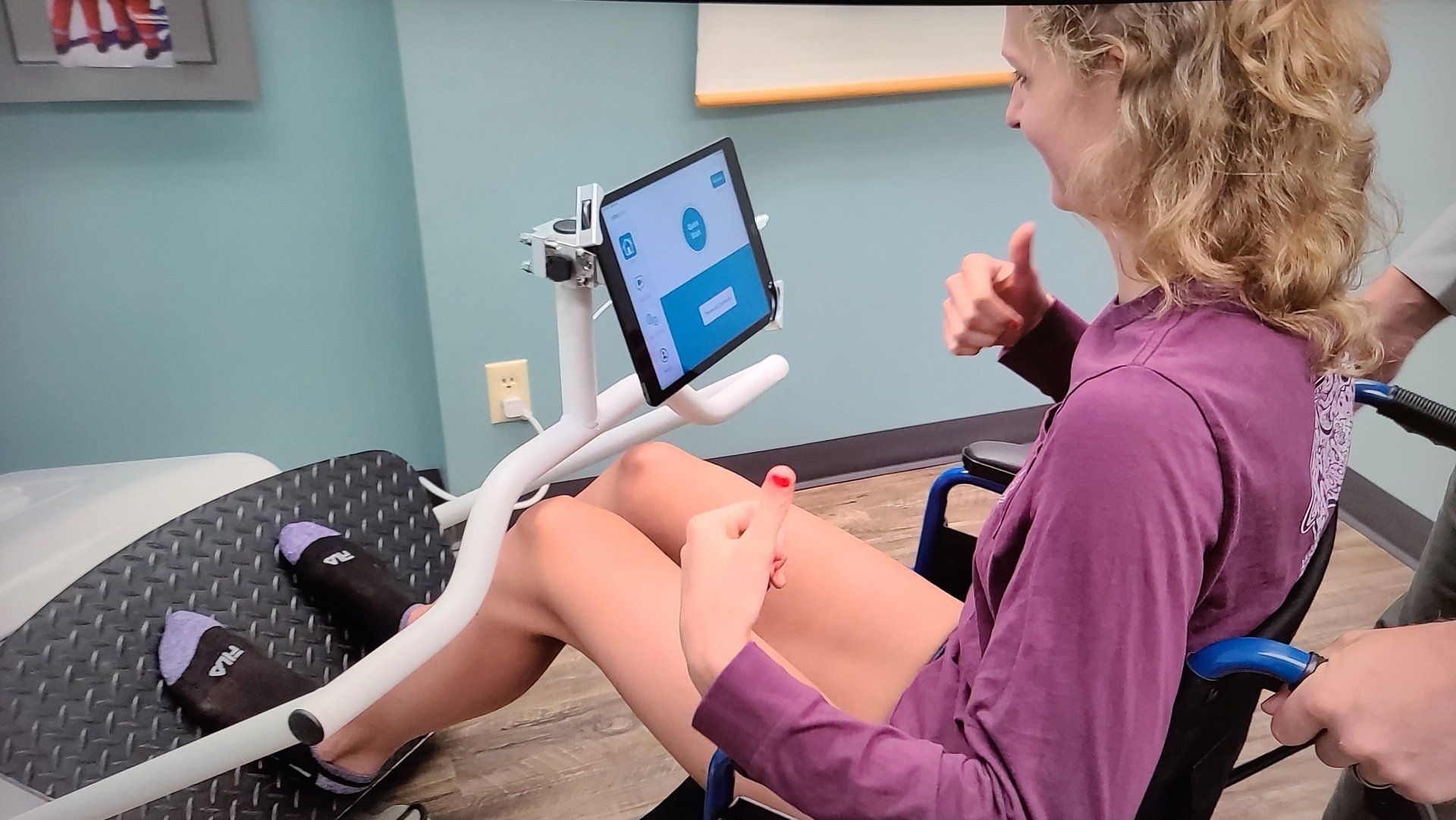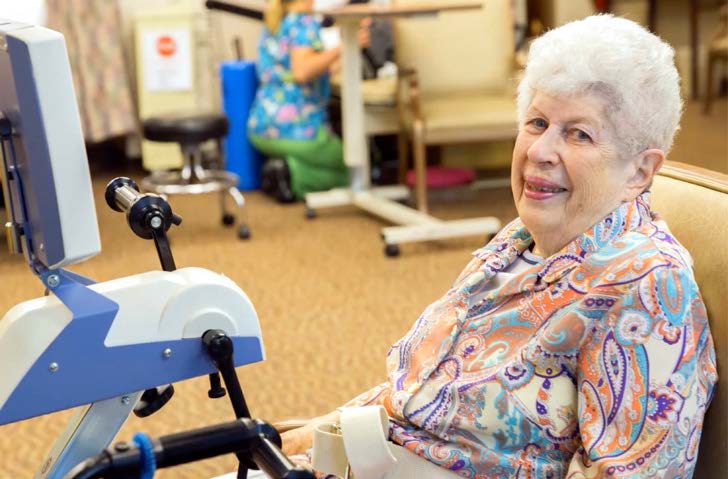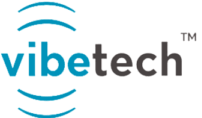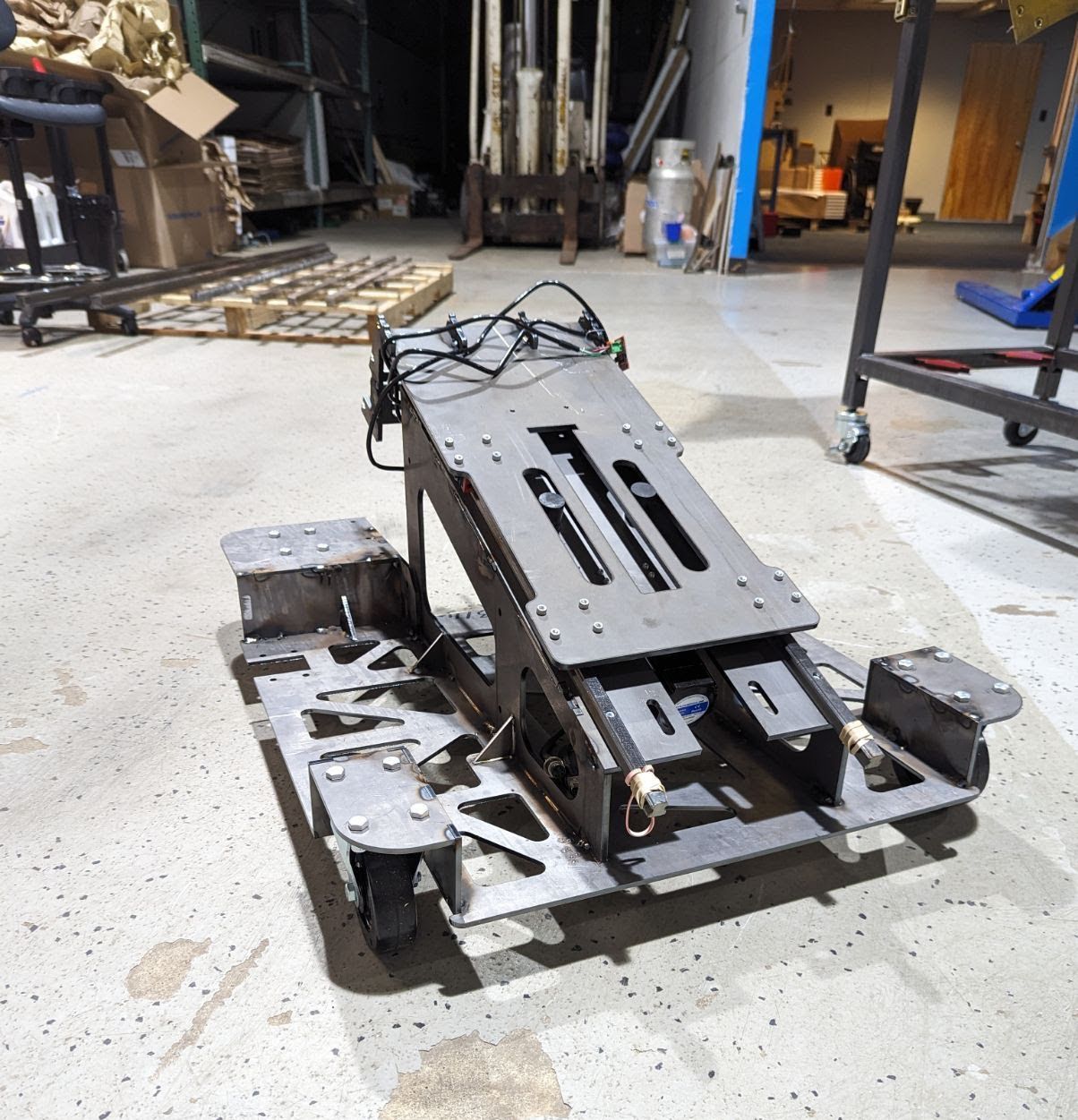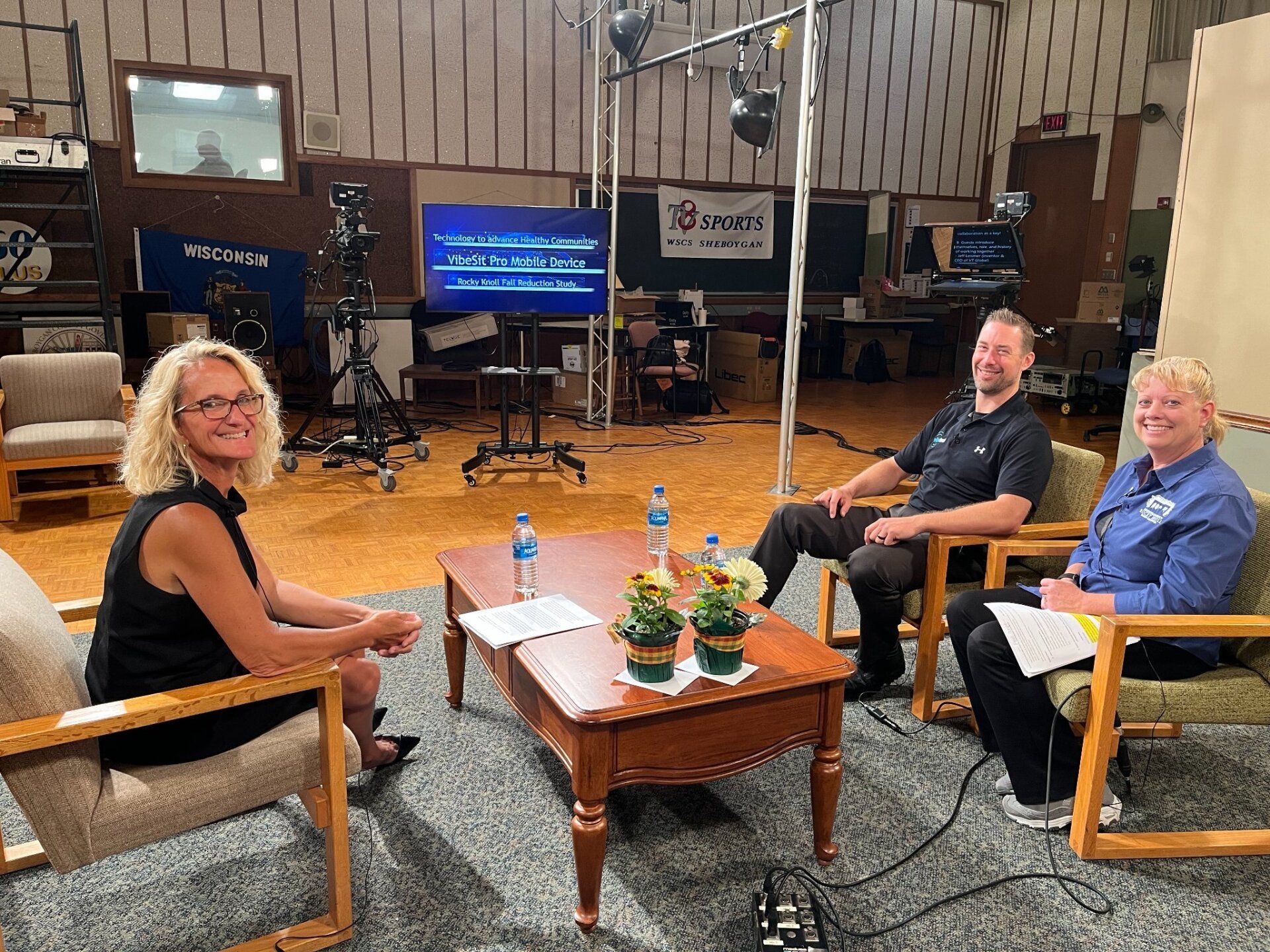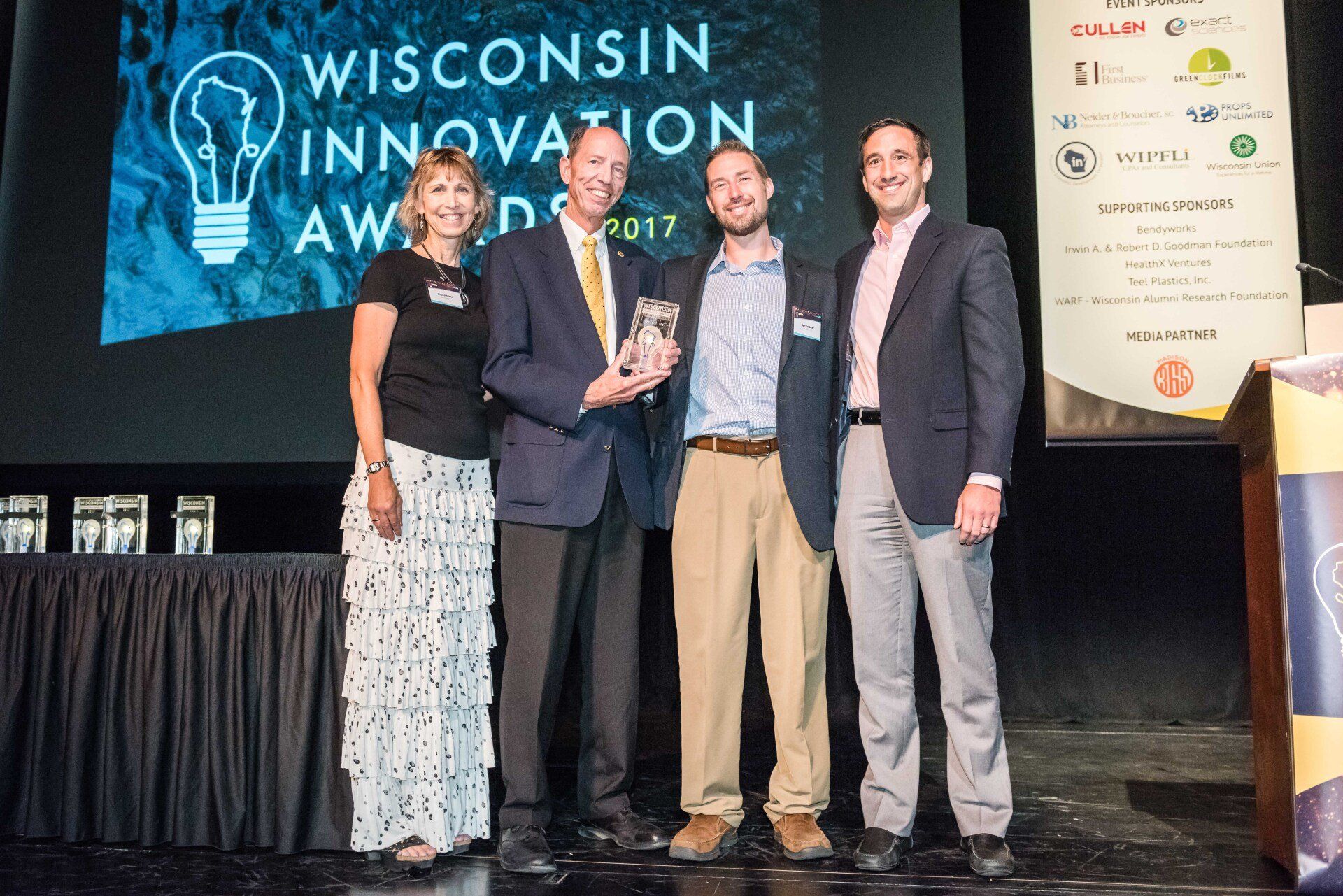V I B E T E C H N E W S & U P D A T E S
Published by: Jeff Leismer • December 4, 2017
After making a breakthrough discovery as a biomedical engineering graduate student at Michigan Tech University nearly 17 years ago, Dr. Jeff Leismer of Sheboygan has traveled a long, intricate and potentially game-changing road in developing a revolutionary treatment for those suffering from mobility-limiting injuries and disabilities.
Through his Sheboygan-based VibeTech Inc. NASA spin-off business, Leismer is on the verge of unleashing his award-winning VibeTech semi-recumbent physical therapy system to the health care and rehabilitation field in force.
While studying how vibration-based systems could combat bone loss in astronauts during prolonged trips in space, the Detroit, Mich. native's original college research was based on the thought that using robotic vibrations could stimulate bone growth by essentially tricking bones into thinking they are being worked as they would be in normal physical activity.
“I began this process in 2001 when I started developing medical devices to overcome challenges faced by astronauts during long duration spaceflight while studying under the tutelage of a professor who studied NASA astronauts,” Leismer said. “We were attempting to see how we could use vibration technology to help astronauts who experience significant bone loss during long-duration space flights.
“I tested a high vibration machine on my legs for 10 minutes,” he said. When I tried to get back on my feet, I just about fell over. My legs were extremely fatigued. It was at that moment that I knew that this technology could benefit not just NASA astronauts with bone loss, but everyone on Earth who is dealing with a leg injury or mobility disability.”
Upon realizing that the vibration system could actually strengthen muscle for those with limited mobility, Leismer set out to test the technology through comprehensive research and development and clinical trials while gaining FDA approval and securing a number of patents.
After earning a doctorate from the University of Florida and relocating to Sheboygan in 2007 to work at Kohler Co., Leismer continued to lay the groundwork for his work with VibeTech.
Leismer's job at Kohler was eliminated during the recession, which led him to seek university teaching jobs.
In 2010, he got his big break when he received a $200,000 grant from the National Institutes of Health, which allowed him to pursue his VibeTech dreams on a full-time basis.
“I took great care to make sure this technology was safe,” Leismer said. “There was a great deal of rigor involved in the initial design. This involved significant research on bone fracture mechanics to make sure the equipment would help people without risk of hurting them.”
“When we got to the point where I thought we understood the science of it better than anyone else out there, I knew we were ready to put out a product and let people see what we had,” he said.
The result was the production of the VibeTech One robotic leg press machine, which was originally introduced in a very limited run of five machines in 2014.
One of the original series of machine was placed at Rocky Knoll Health Care Center in Plymouth, while another was installed at the Ovation Jewish Home in Milwaukee.
VibeTech’s technology incorporates the three active ingredients of physical activity - placing load, range of motion and therapeutic vibration on the legs to stimulate and strengthen leg muscles of patients recovering from injury and surgery, or experiencing weakness and frailty due to aging, lack of use or disability.
Leismer said the machine is completely accessible for patients of all stages of mobility, including those that are wheelchair bound.
“The device is aimed at people that are dealing with significant injuries, disabilities and chronic pain that has left them unable to perform weight-bearing exercises on their own that are usually required in order to build back bone mass and muscle strength,” Leismer said. “The amazing thing about it is that this works without any effort from the patient, although the user can take over for the machine when their health permits. The machine is able to do the work that is needed to aid in the patient's recovery”.
“It is really exciting because I am confident that this will be able to help millions of people that are struggling because they lack the mobility needed for their rehab,” he said. “There are just no other machines quite like this. VibeTech gives them hope.”
Leismer is currently poised to launch the second-generation VibeTech machine, which is being offered as part of a customer service package which is profitable for rehab centers from day one. This service includes innovative software applications and customer care features.
The second-generation VibeTech robotic leg press provides the added features of functional assessments, treatment planning and outcome evaluations based on patient-specific data with required documentation functions and patient interactive engagement.
According to Leismer, all data collected by the second-generation VibeTech machine will be formatted to be uploaded and compatible with leading healthcare management software systems making the system perfect for use at hospitals, skilled nursing facilities, physical therapy clinics, sports medicine facilities and other rehab centers.
“We have continued to do our research and the second-generation machine is even safer and more effective than our first model,” Leismer said.
“The system is completely fine tuned to be patient-specific by measuring strength and range of motion and dosing treatment based on the results,” he said. “This gives us the ability to better evaluate and measure outcomes and track how much improvement a patient has made during each one of their 10-minute sessions as well as over their course of treatment.”
The second-generation device also includes three rehab games to further engage patients, and many more games are to come. We are even working on the development of games for patients with specific conditions, such as dementia.
“We are currently working with a team of biomedical engineering students at UW-Madison to engage patients through interactive games, which grant rewards to patients. One idea considered was the use of virtual coins that patients can collect by attaining strength and coordination-related goals,” Leismer said. “We are working on a way to convert the virtual coins into real monetary rewards to be used at our customers’ gift shops, beauty salons and cafeterias.”
Over the past three years, the VibeTech semi-recumbent physical therapy system has created significant buzz in the field recently garnering an Innovation Award in the biotech category at the Wisconsin Innovation Awards in Madison.
Leismer and VibeTech CFO Ed Morgan have enlisted the support of four key consultants, an experienced board of directors, nationally and internationally recognized advisors, while aligning with Alaark Tooling and Automation of Sheboygan to manufacture VibeTech’s rehabilitation equipment.
According to Leismer, the next phase of the process is to secure additional capital to produce the machines for hospitals, nursing homes and rehab facilities throughout the country.
“We have everything we need to get the second-generation product out on the market, except the business development and sales side of it,” Leismer said. “We are seeking investors at all levels to help make this into a system that is readily available for all to use in the near future.
“We have an eye on expansion and our goal is to let everyone know the benefits and value of the VibeTech leg press machine,” he said. “We have generated a lot of interest in the health care field and there is a good buzz out there. We just need to secure the remaining investments necessary to push us over the top.”
The Sheboygan Senior Community is in line to be the first local demonstration point for the second-generation VibeTech machine and Leismer is looking at opening an office in Sheboygan before the end of the year to provide additional training opportunities on the VibeTech equipment.
“Our goal is to improve the quality of life for the patients that use the equipment,” Leismer said. “The response from the health care community has been great and I know there are a lot of clinic teams out there that are interested in the outcomes. In over 10,000 treatments thus far, there have been positive results for those using the equipment.
“The benefits for the worse-off patients who are too frail to use any other type of rehab equipment are incredible,” he said. “Our clinical studies have shown that the short-term gains are sustained and progressive in nature, leading to faster recovery with less pain.”
After 16 years of tireless work, Leismer is dedicated to see VibeTech through to widespread success.
“We are poised to ramp up production and get the second-generation VibeTech machine out into the field in large numbers to the general public,” Leismer said. “This has been a great illustration of how space is a great test bed for technology. I'm excited to see what this will do to help people and serve a greater good in the health care and rehab field.
“This technology may be just what the healthcare industry has been missing to solve the healthcare cost crisis through highly effective and efficient treatments that can benefit every patient admitted to therapy,” he said.
For more information on VibeTech Inc., visit www.vibetechglobal.com, email sales@vibetechglobal.com or call to speak to Dr. Jeff Leismer at 920-395-5339.
